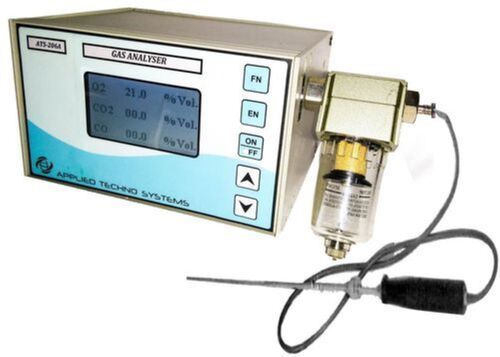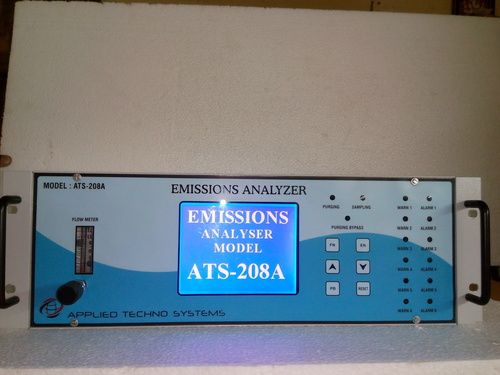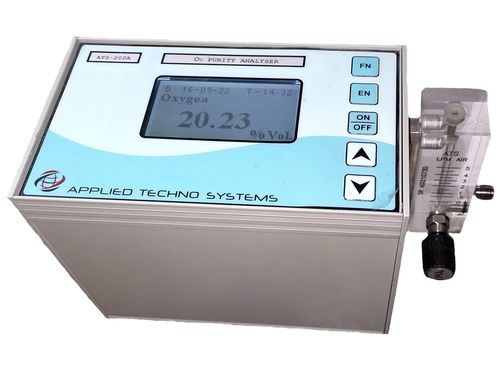- ओस बिंदु मीटर
- गैस विश्लेषक
- पोर्टेबल गैस डिटेक्टर
- नमी और ओस बिंदु विश्लेषक
- धूल मॉनिटर
- गैस निगरानी प्रणाली
- गैस रिसाव डिटेक्टर
- गैस ट्रांसमीटर
- वीओसी लीक डिटेक्टर
- वायु गुणवत्ता निगरानी प्रणाली
- ऑनलाइन सतत उत्सर्जन निगरानी प्रणाली-ओसीईएमएस
- ओस प्वाइंट मॉनिटर्स
- गैस डिटेक्टर
- अपारदर्शिता मॉनिटर
- पोर्टेबल फ़्लू गैस विश्लेषक
- ऑनलाइन एसओएक्स और एनओएक्स गैस विश्लेषक
- मीथेन गैस रिसाव डिटेक्टर
- हाइड्रोजन शुद्धता विश्लेषक
- गैस शुद्धता विश्लेषक
- प्रवाह निगरानी प्रणाली
- निर्माता गैस विश्लेषक
- गैस डिटेक्टर अंशांकन सेवा
- पोर्टेबल गैस मॉनिटर्स
- गैस सेंसर ट्रांसमीटर
Combustion Gas Analyzer
उत्पाद विवरण:
- मटेरियल Aluminium
- बिजली की आपूर्ति Electric
- रंग Grey
- नमी 85% RH
- तापमान सेल्सियस (oC)
- वज़न किलोग्राम (kg)
- वोल्टेज वोल्ट (v)
- अधिक देखने के लिए क्लिक करें
मूल्य और मात्रा
- 1
उत्पाद की विशेषताएं
- Industrial
- वोल्ट (v)
- मिलीमीटर (mm)
- किलोग्राम (kg)
- सेल्सियस (oC)
- 85% RH
- Grey
- Electric
- Aluminium
व्यापार सूचना
- प्रति सप्ताह
- दिन
उत्पाद वर्णन
A combustion gas analyzer is a device used to measure the concentration of gases produced during the combustion process in boilers, furnaces, and engines. These analyzers monitor emissions of gases such as oxygen (O2), carbon dioxide (CO2), carbon monoxide (CO), nitrogen oxides (NOx), and sulfur dioxide (SO2) to ensure optimal combustion efficiency, safety, and environmental compliance.
Combustion gas analyzers are widely used in industries like power generation, manufacturing, automotive, and HVAC systems. They are critical for reducing fuel consumption, optimizing energy use, and controlling pollution. Most analyzers are equipped with sensors and provide real-time data that allows operators to adjust combustion parameters.
Key Features:
- Multi-gas detection: Monitors various gases such as CO, CO2, O2, NOx, and SO2.
- Portability: Many models are handheld, making them suitable for field use.
- Data logging: Records data for later analysis and reporting.
- Real-time measurement: Provides instant feedback on combustion efficiency.
- User interface: Displays information clearly, often with touchscreens or buttons for ease of use.
Frequently Asked Questions (FAQs)
-
What gases does a combustion gas analyzer measure?
- Most combustion gas analyzers measure oxygen (O2), carbon dioxide (CO2), carbon monoxide (CO), nitrogen oxides (NOx), and sulfur dioxide (SO2). Some models may also detect unburned hydrocarbons or methane.
-
Why is a combustion gas analyzer important?
- It helps optimize combustion efficiency by ensuring the proper air-fuel ratio, thereby improving fuel economy, reducing emissions, and maintaining compliance with environmental regulations. It also helps prevent the release of harmful gases that can lead to safety hazards or regulatory fines.
-
How does a combustion gas analyzer work?
- The analyzer uses sensors to measure the concentration of various gases in the exhaust or flue gas. For example, electrochemical sensors detect oxygen levels, while infrared or chemical sensors measure CO and CO2 concentrations. The readings help operators adjust the combustion process for better efficiency and reduced emissions.
-
What industries use combustion gas analyzers?
- Combustion gas analyzers are used in power plants, oil and gas refineries, automotive industries, HVAC systems, manufacturing plants, and other sectors where fuel combustion occurs.
-
How often should a combustion gas analyzer be calibrated?
- It depends on the frequency of use and the model, but typically, combustion gas analyzers should be calibrated every 6 to 12 months to ensure accurate readings. Some analyzers may require more frequent calibration based on operating conditions.
-
Can combustion gas analyzers detect gas leaks?
- While combustion gas analyzers primarily measure emissions, some models may have features that help detect gas leaks, especially for flammable gases like methane. However, dedicated leak detectors are more effective for this purpose.
-
What is the difference between a combustion analyzer and a flue gas analyzer?
- A combustion analyzer focuses on optimizing the combustion process by measuring the concentration of gases like O2, CO, and CO2 in the combustion chamber. A flue gas analyzer measures the composition of gases in the exhaust flue, typically monitoring emissions from the entire system.
-
How long does a combustion gas analyzer last?
- With proper maintenance and regular calibration, a high-quality combustion gas analyzer can last several years. However, sensor life can vary and may need replacement depending on usage and the operating environment.
-
Are combustion gas analyzers portable?
- Many models are designed for portability, allowing users to take measurements in various locations. These handheld models are often used for HVAC maintenance and field testing.
-
How can I ensure accurate readings from my combustion gas analyzer?
- Regular calibration, proper sensor maintenance, and following the manufacturer™s guidelines for use and storage can ensure accurate readings. It™s also important to check for sensor degradation over time

Price: Â
- 50
- 100
- 200
- 250
- 500
- 1000+








 English
English Spanish
Spanish French
French German
German Italian
Italian Chinese (Simplified)
Chinese (Simplified) Japanese
Japanese Korean
Korean Arabic
Arabic Portuguese
Portuguese